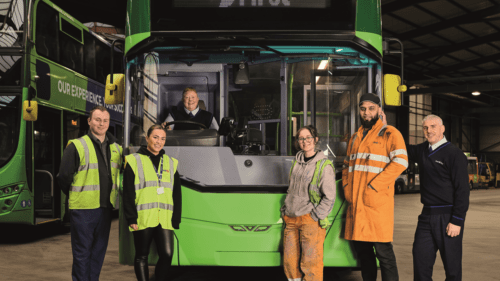
First Bus has announced that it is has been accredited as a Real Living Wage (RLW) employer, which means 1,300 staff across its UK businesses have benefited with a pay rise in line with the new commitment from 1 April.
The move brings every employee to at least £12 per hour across its UK business and includes workers employed through third party contractors. First Bus says it is the UK’s largest national bus operator to make this commitment, cementing its position as an employer of choice in the sector and demonstrating the importance of its staff. The RLW is a voluntary pay commitment over and above the UK Government’s National Living Wage (NLW) standard for workers aged 21 and over and is calculated annually and set independently by the Living Wage Foundation, based on actual living costs rather than the median earnings calculations used for NLW. It is applicable to workers aged 18 and over, and First has also included its apprentices in the scheme.
First Bus Managing Director Janette Bell said: “We are delighted to be working with the Living Wage Foundation and are thrilled to be become a fully accredited real Living Wage employer. This has an immediate positive impact for 1,300 of our colleagues with a pay rise from today and we are once again demonstrating to our people and the market that we care.
“Engaged employees encourage customers to travel more often. So, by treating our employees well, we are also helping to achieve our mission to get people out of their cars and onto the bus.
“We want First Bus to be a place where our people feel welcome, can be their true selves and succeed. It is vital that we do all we can to support our colleagues, and this is another important step in our transformation journey.”
Katherine Chapman, Director of the Living Wage Foundation, added: “We’re delighted that First Bus has joined the movement of over 14,000 responsible employers across the UK who voluntarily commit to go further than the government minimum to make sure all their staff earn enough to live on. They join thousands of small businesses, as well as household names such as Burberry, Barclays, Everton Football Club and many more.”

